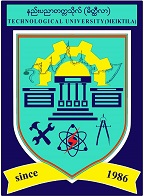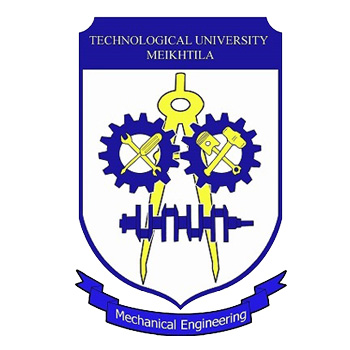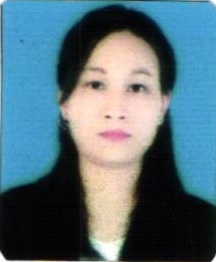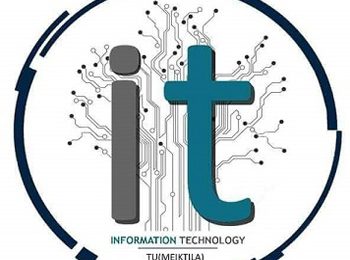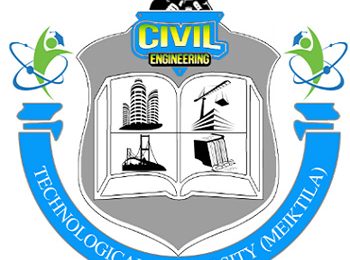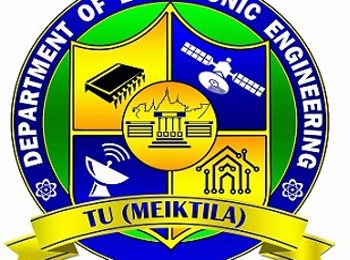Professor and Head
Dr. Than Than Htay
Vision
-To come out innovative and outstanding students to improve the field of Mechanical Engineering
Mission
-Through the effective teaching-learning methods students are encouraged to learn more advanced technologies.
-To emerge talented and creative engineers in their professions.
Quality Objective
-To increase the pass rate to more than 75% and to reduce the percentage of undergraduates’ drop-out to less than 5% for every Academic year.
Graduate Attributes (GA)
The Engineering Department has established the following learning outcomes in order to successfully achieve and satisfy our program objectives. These outcomes are subordinate to the program objectives and represent the skills and attributes our students should GAs at the time of graduation. At the end of six years programme, the graduates will be able to:
- Acquire and apply fundamental knowledge of Mathematics, Science, basic electrical and electronic engineering and Mechanical engineering focus in solving complex engineering problems.
- Apply first principles of Mathematics, Natural Science and engineering to identify, formulate and evaluate complex Mechanical engineering problems based on systematic approach and to reach sustainable conclusions.
- Design solutions for complex and design systems to meet desired needs with realistic constraints for economical, environmental, societal, public health and safety.
- Investigate and study complex engineering problems using literature survey, results of engineering experiments in workshops and laboratories as well as to analyse and interpret data information from research.
- Create and apply modern engineering technique, instrumentation, ICT based tools for prediction, modelling and solving complex engineering problem with an understanding of the limitation resources.
- Practice and apply reasoning informed by consideration in societal, health, safety, legal, cultural issues and the consequent responsibilities relevant to professional engineering practice.
- Evaluate the impact of professional engineering technology solutions in a societal, environmental constraints and global context.
- Apply ethical principles and commit to professional ethics and responsibilities and norms of an engineer.
- Display capability to work competently in the context of a diverse team within multidisciplinary environment, as an individual member with teamwork fortitude or as an inspiring leader with effective management skills.
- Communicate an engineering community and society to present effective report and design documentation with clear instructions.
- Demonstrate engineering management principle in their own /team work and management facilities in project as a leader.
- Recognize the need to take on independent life-long learning and continuous self-improvement in the context of technological change.
Program Educational Objectives (PEO)
- To address the full range of technological and societal problems with creativity, investigation, confidence and responsibility to their chosen professional areas as mechanical engineering.
- To grace effective collaborators and leadership roles in their careers and to manage projects in environmental context, and also skills in the design development and application of mechanical systems in diverse industries with the highest professional and ethical standards.
- To retain the intellectual curiosity that motivates lifelong learning and continuous improvement of their knowledge related to technical fields, professional ethics and public health and safety allowing for a flexible response to the rapidly evolving challenges of the 21st century.
Contribution of the GAs to the PEOs
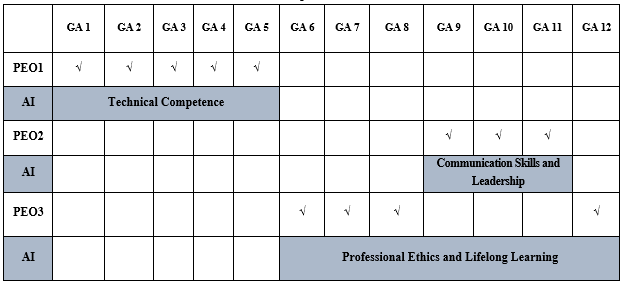
** AI = Achievement Indicator
-
First Year
-
Lecture 2.1First Year Curriculum
Year I, Semester I
Year II, Semester IICode Title Credits L T P M 11011 Myanmar I 2 2 0 0 E 11011 English I 2.5 2 1 0 EM 11011 Engineering Mathematics I 4.5 4 1 0 E.Ch 11011 Engineering Chemistry I 4.5 3 1 2 E.Ph 11011 Engineering Physics I 3.5 2 1 2 ME 11011 Basic Engineering Drawing I 2 1 0 2 ME 11012 Workshop Practice 1 0 0 2 Code Title Credits L T P M 12011 Myanmar II 2 2 0 0 E 12011 English II 2.5 2 1 0 EM 12011 Engineering Mathematics II 4.5 4 1 0 E.Ch 12011 Engineering Chemistry II 4.5 3 1 2 E.Ph 12011 Engineering Physics II 3.5 2 1 2 ME 12011 Basic Engineering Drawing I 2 1 0 2 ME 12012 Workshop Practice 1 0 0 2
-
-
Second Year
-
Lecture 3.1Second Year Curriculum
Year II, Semester I
Year II, Semester IICode Title Credits L T P E 21011 English 2.5 2 1 0 EM 21013 Engineering Mathematics I 4.5 4 1 0 ME 21011 Machine Drawing II 2 1 0 2 ME 21012 Workshop Technology 2 1 0 2 ME 21015 Engineering Mechanics 2.5 2 1 0 ME 21013 Engineering Thermodynamics I 2.5 2 0 1 EP 21013 Applied Electrical Engineering 2.5 2 0 1 Code Title Credits L T P E 22011 English 2.5 2 1 0 EM 22013 Engineering Mathematics II 4.5 4 1 0 ME 22011 Machine Drawing II 2 1 0 2 ME 22012 Workshop Technology 2 1 0 2 ME 22015 Engineering Mechanics 2.5 2 1 0 ME 22013 Engineering Thermodynamics I 2.5 2 0 1 EP 22013 Applied Electrical Engineering 2.5 2 0 1
-
-
Third Year
-
Lecture 4.1Year III, Semester I
Year III, Semester IICode Title Credits L T P E 31011 English 2.5 2 1 0 EM 31015 Engineering Mathematics I 4.5 4 1 0 ME 31013 Engineering Thermodynamics II 2.5 2 0 1 ME 31014 Strength of Materials I 2.5 2 0 1 ME 31015 Theory of Machines I 2.5 2 0 1 Met 31071 Engineering Materials 2.5 2 0 1 ME 31022 Production Technology 2.5 2 0 1 EcE 31014 Basic Electronic Engineering 2.5 2 0 1 Code Title Credits L T P E 32011 English 2.5 2 1 0 EM 32015 Engineering Mathematics II 4.5 4 1 0 ME 32013 Engineering Thermodynamics II 2.5 2 0 1 ME 32014 Strength of Materials I 2.5 2 0 1 ME 32015 Theory of Machines I 2.5 2 0 1 Met 32071 Engineering Materials 2.5 2 0 1 ME 32022 Production Technology 2.5 2 0 1 EcE 32014 Basic Electronic Engineering 2.5 2 0 1
-
-
Fourth Year
-
Lecture 5.1Fourth Year Curriculum
Year IV, Semester I
Year IV, Semester IICode Title Credits L T P E 41011 English 2.5 2 1 0 EM 41016 Engineering Mathematics I 4.5 4 1 0 ME 41032 Manufacturing System and Automations 2.5 2 0 1 ME 41031 Design of Machine Elements 2.5 2 1 0 ME 41033 Heat Transfer 2.5 2 0 1 ME 41014 Strength of Materials II 2.5 2 0 1 ME 41016 Fluid Mechanics I 2.5 2 0 1 ME 41015 Theory of Machines II 2.5 2 0 1 Code Title Credits L T P E 42011 English 2.5 2 1 0 EM 42016 Engineering Mathematics II 4.5 4 1 0 ME 42042 Manufacturing System and Automations 2.5 2 0 1 ME 42031 Design of Machine Elements 2.5 2 1 0 ME 42033 Heat Transfer 2.5 2 0 1 ME 42014 Strength of Materials II 2.5 2 0 1 ME 42016 Fluid Mechanics I 2.5 2 0 1 ME 42015 Theory of Machines II 2.5 2 0 1
-
-
Fifth Year
-
Lecture 6.1Year V, Semester I
Year V, Semester IICode Title Credits L T P ME 51043 Gas Turbine Theory 2.5 2 0 1 ME 51015 Vibration and Control 2.5 2 0 1 ME 51017 Refrigeration and Air-condition 2.5 2 0 1 ME 51028 Industrial Engineering and Management 2.5 2 1 0 ME 51023 Internal Combustion Engines 2.5 2 0 1 ME 51016 Fluid Mechanics II 2.5 2 0 1 ME 51031 Machine Design and Project 1.5 0 0 3 Code Title Credits L T P ME 52043 Gas Turbine Theory 2.5 2 0 1 ME 52015 Vibration and Control 2.5 2 0 1 ME 52017 Refrigeration and Air-condition 2.5 2 0 1 ME 52028 Industrial Engineering and Management 2.5 2 1 0 ME 52023 Internal Combustion Engines 2.5 2 0 1 ME 52016 Fluid Mechanics II 2.5 2 0 1 ME 52031 Machine Design and Project 1.5 0 0 3
-
-
Final Year
-
Lecture 7.1Final Year Curriculum
Year VI, Semester I
Year VI, Semester IICode Title Credits L T P ME 61020 Renewable Energy 2 0 1 ME 61019 Computer Application in Mechanical Engg 2 0 2 ME 61028 Engineering Management 2 1 0 HSS 61012 Huminities and Social Science 4 0 0 Industrial Training 4 Sr. No Code Courses Credit points 1 ME 62031 Internship (8 weeks) (4 credit points) 2 ME 62032 Graduation Thesis (Individual) (8 credit points)
-

